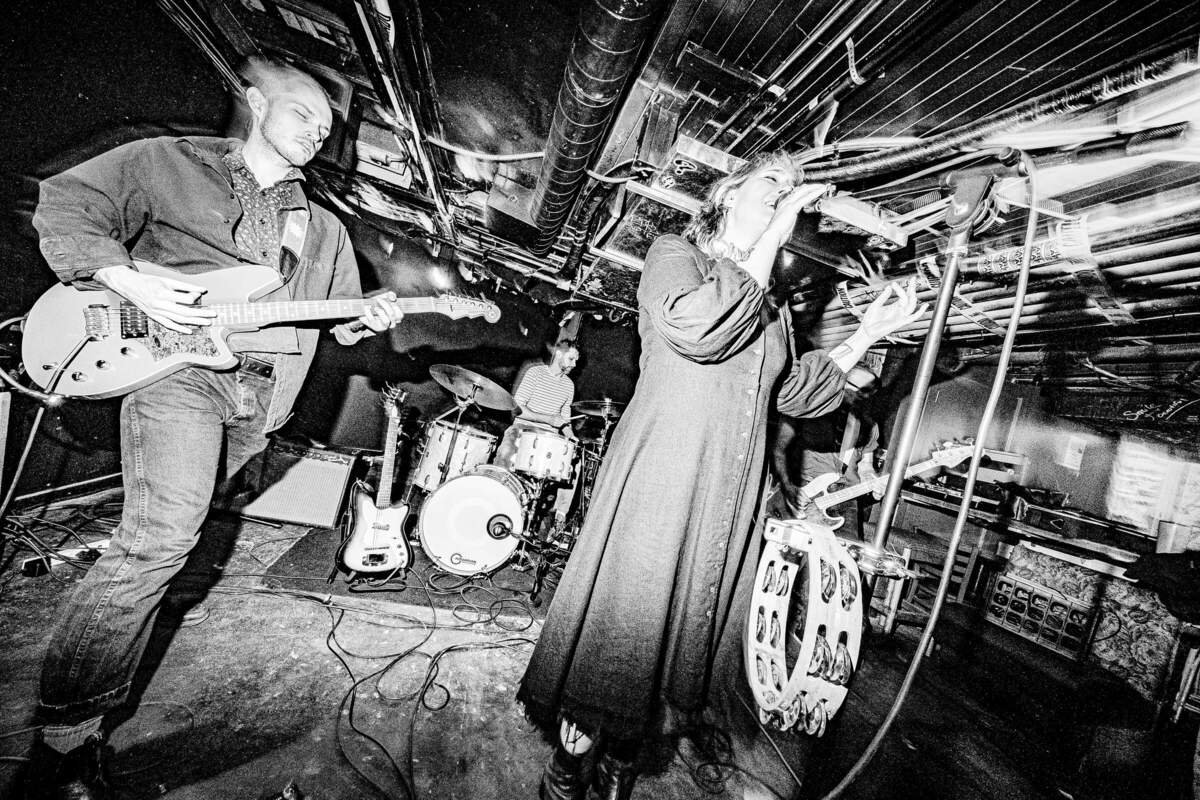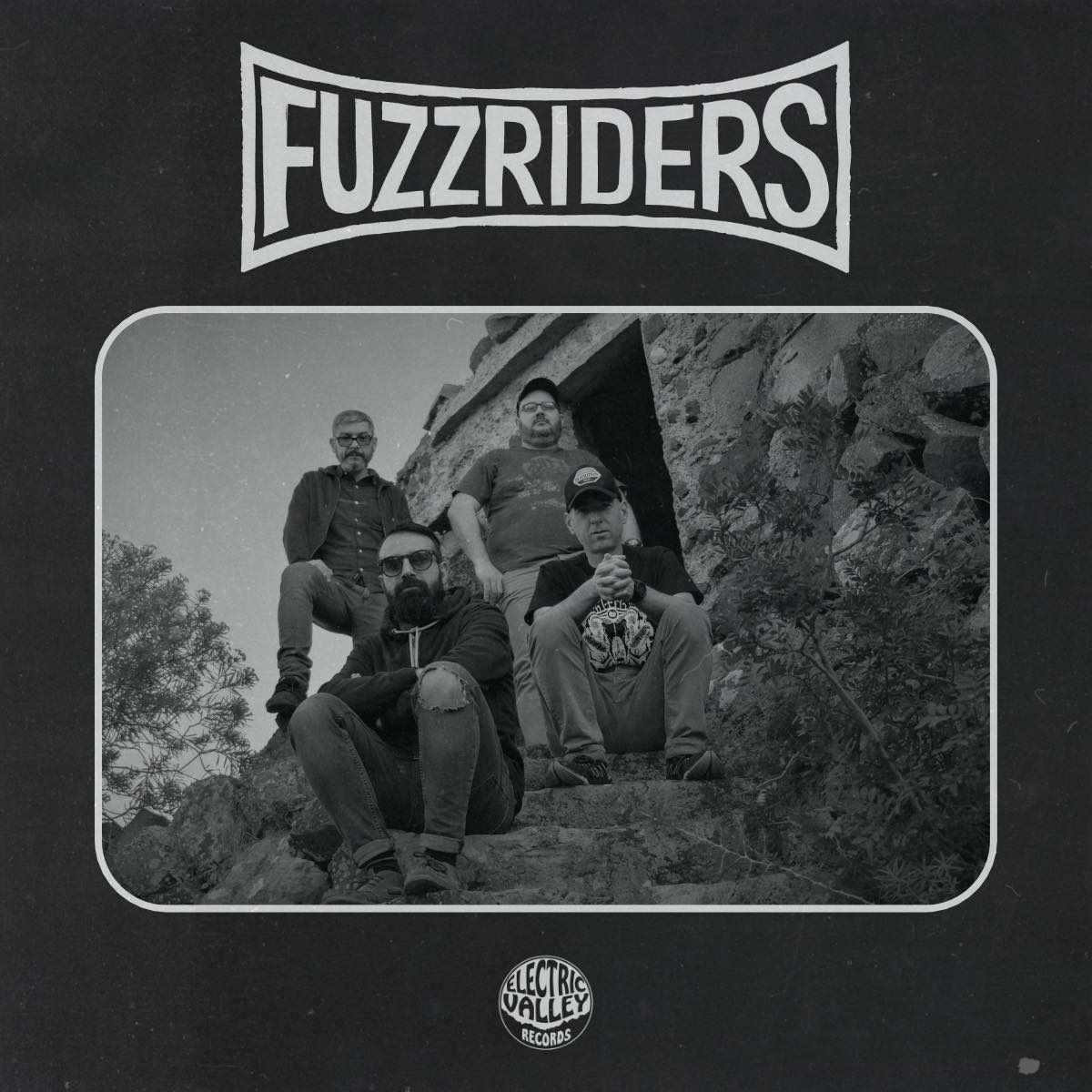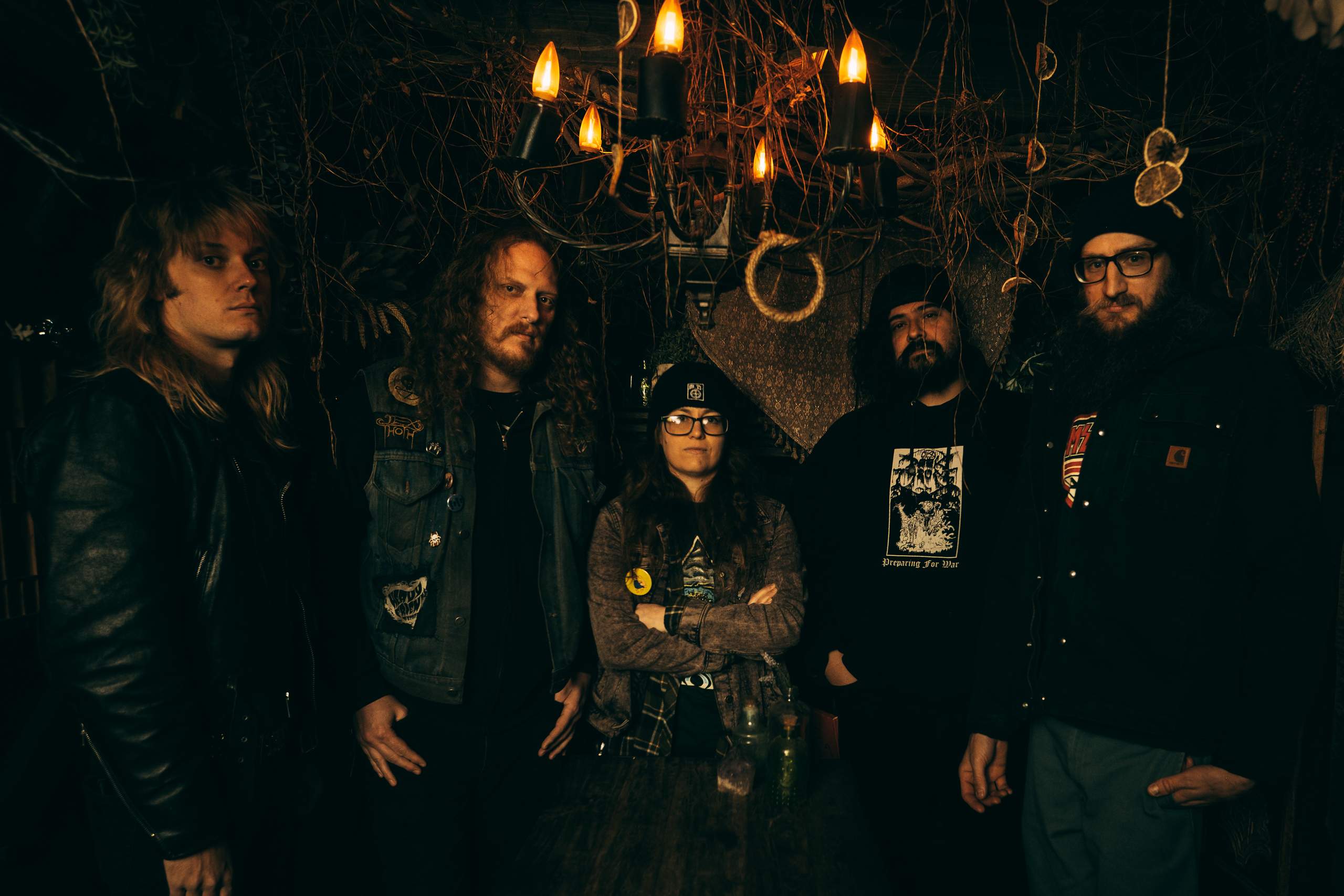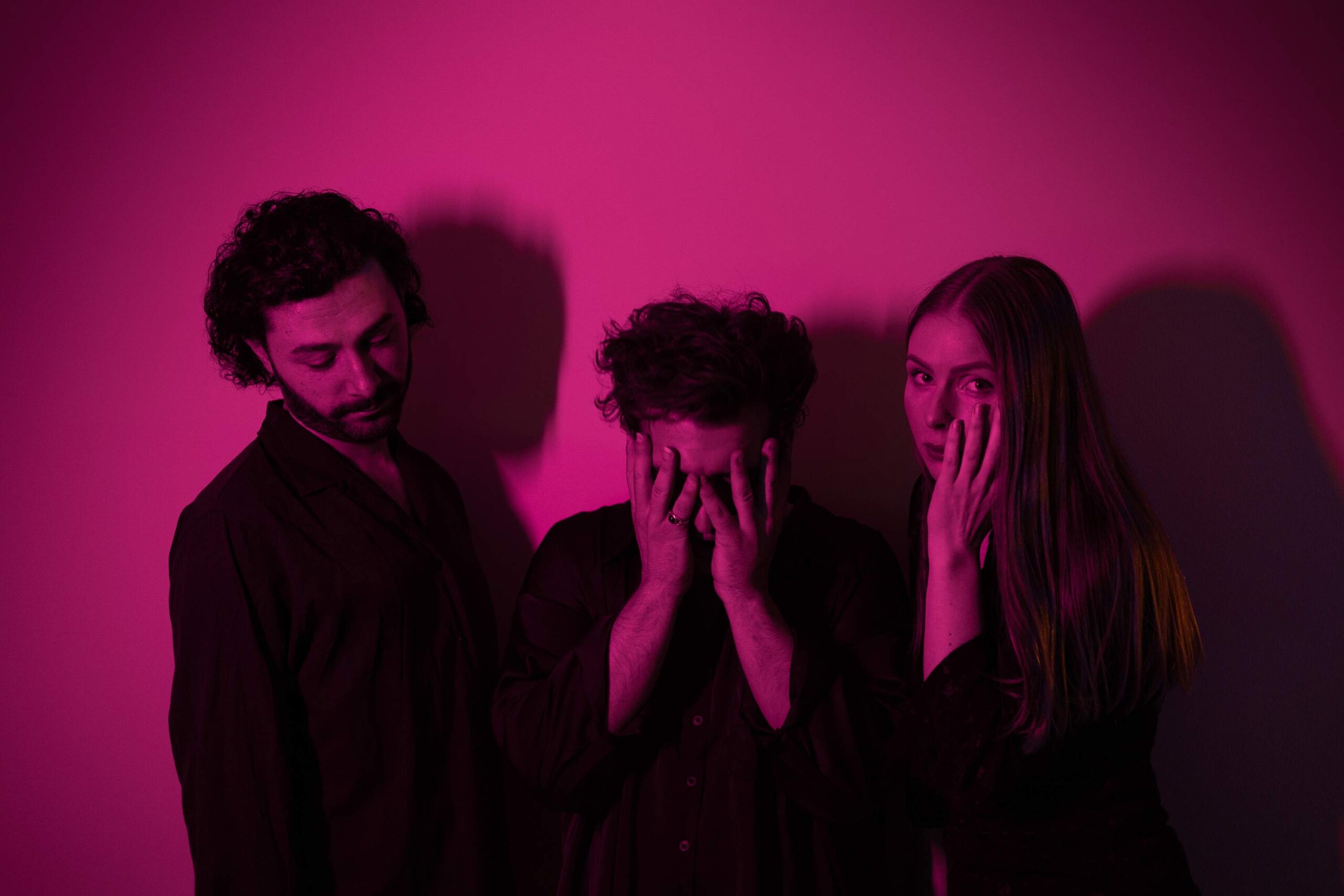Death Doula | Interview | New Album, ‘Love Spells’
Death Doula is a band experimenting with sound and emotion. Their music offers both refuge and a call to arms for those willing to confront the darkest parts of themselves.
With a name that evokes the intimate and transformative moments of life’s final chapter, their songs become companions on the journey through love, loss, and rebirth. Each track feels like an invitation to lean into the unspoken, embracing both heartbreak and healing. Their sound, woven from dreamlike atmospheres, is uniquely haunting and empowering.
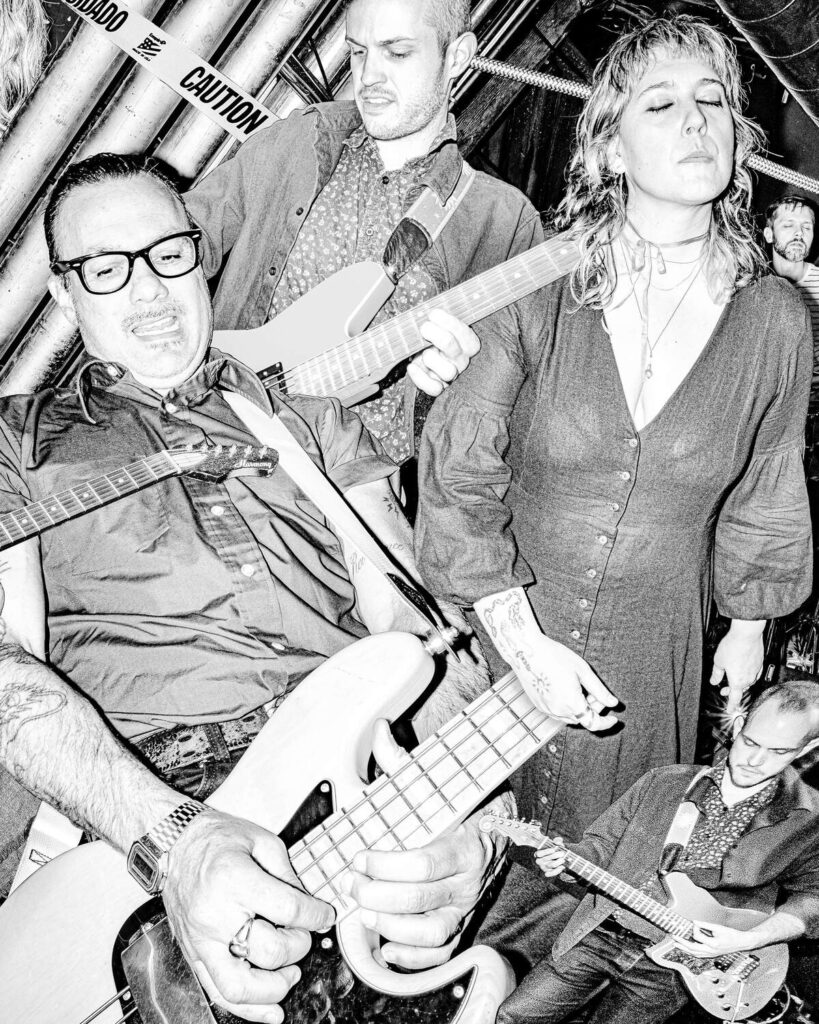
“We treat Death Doula as a vessel for forgetting about that system”
‘Love Spells’ is a hell of a title. Was the idea to summon spirits or break hearts—or maybe both? The whole thing has this smoky, witchy vibe. What kind of magic are you weaving in these tracks, and how do you want listeners to feel when the spell hits?
Kerry: A witch never tells…
You’ve got this beautiful tension between melodies and almost primal intensity. Do you feel like that reflects something about your relationship as a band—or even the romance between Kerry and Kyle?
Kerry: I do feel that a particular gathering of people informs their sound, absolutely. It’s like, we all write the way we write, with the influences, inspirations, and bents we each have. That confluence is our specific alchemy.
Recording at Jackpot Studios with Adam Lee and having Bob Cheek mix it must’ve added some serious mojo to the process. How did their touch shape the final sound of ‘Love Spells’? Were there any “happy accidents” during recording that you ended up keeping?
Kyle: Working with Bob and Adam was great. Adam’s microphone technique was so good that I never needed to think about whether or not the recordings would represent the way we sound in the room effectively, and Bob’s mixes came back sounding better than I imagined the songs to sound in my head! But on this record, most of the ‘mojo’ is just a live capture of how we sound. As far as happy accidents, I would say that 95% of the album was ready before we went into the studio, but Kerry and Keith both came up with some amazing ideas on the spot that made it to the record. I can be a little stubborn about adding things at the last minute, but I end up coming around.
Kerry, that quote about wanting to make people feel something in a numb, algorithmic world—hell, that sounds like a manifesto. How do you see Death Doula as an antidote to the numbing effect of modern music consumption?
Kerry: Yeah, this is something I struggle with. The Spotify algorithm says, “Oh, since you liked this soft-sounding gentle female vocal thing, you’ll like this other soft vocal thing.” And a person just ends up listening to the same-sounding music all day long, without engaging with who they’re listening to, knowing the group name or where they’re from, or if they’re modern or not. It’s frustrating as an artist. I’m not blaming people, I’m blaming the system—the corporations. The way it’s set up, smaller bands don’t even trigger the algorithm, so most bands are spending money to be part of the conversation. Merit doesn’t seem to count for much anymore, and the bands with the deepest pockets are moving to the front of the line. We treat Death Doula as a vessel for forgetting about that system, because what else can we do? As artists, we have to create as though no one’s watching and everyone’s watching. We have to make the songs we want to perform night after night, that tell the stories we want to tell, the way only we can tell them, the songs we want the world singing along with. Passion is present—it’s a member of the band. This isn’t mumblecore, this isn’t “everything is embarrassing.” Our music is a celebration of feeling your feelings and living life as art.
Kyle, you moved to Portland on nothing but a whim and a crush—seems like one hell of a leap for love and art. Looking back, do you think that kind of reckless spontaneity is a necessary ingredient for making meaningful music, or is it more of a “right place, right time” kind of deal?
Kyle: It wasn’t something I thought about at the time… certainly, there were moments when I wondered, “What the hell am I doing?” But I told Kerry that I was completely in love with her on the first night, so it was already far more than a crush. I definitely think that energy inspired the music we’ve written for Death Doula, though. In the past, I’ve made music that was more cerebral, with more intention. In Death Doula, the music comes from a much more instinctive and organic place—perhaps the same level of intuition that says to move in with someone after knowing them for a week.
You list influences like Can, Television, and Kate Bush—but you’ve definitely got your own haunted, dusky twist.
Kyle: Have you ever heard the idea that if you try to draw a perfect circle, which nobody can do, the way you get it wrong is “your style”? Sometimes people are surprised to hear some of our influences because they don’t think we sound like them very much. For us, it’s more about having a shared sense of what an aesthetic should or could be, than trying to recreate things our influences did. I think we are ultimately pretty bad at imitating people, which is a great skill, if you think about it.
Kerry: Yeah, our influences are who make us want to create art that’s just as moving, just as singular, as the art they made. We definitely aren’t a band trying to sound like anyone else.
Portland has a certain mythos—rain-soaked streets, endless coffees, weird art kids—but it’s been through a lot these past few years. How has the city shaped the album?
Keith: That sounds romantic. Coffee and rain? Check. Not sure if Portland is the most artist-friendly spot right now, but there’s a ton of good music and a community fighting for it. Everyone comes through, there’s a good scene and quality bands. Jackpot Recording feels very on this record… impossible to escape the legacy and expectation. Too many amazing bands have been there, and it’s in the walls. A song like ‘The Witness’ feels very vibey and local… dark, wet, doom-y, sludgey, foggy. Soundtrack to a rainy night walk in the West Hills forest, but something wrong is about to go down.
Kerry and Kyle, ‘Disembark’ was the first thing you two wrote together—any memories from that night that still feel electric to you? What’s it like to look back on that demo now, after building out the rest of the album and bringing in the rest of the band?
Kyle: That was the most important night of my life, I think. I still think about it all the time, but I can’t share what, because it’s naughty. As far as the demo goes, Kerry’s vocal melody and my guitar riff are very close, pretty much identical to the original demo. Kerry’s vocal melody has never changed! She improvised her first take, and that’s how we’ve kept it ever since.
The name Death Doula has this heavy, intimate ring to it. It’s got the weight of final moments but also a kind of guiding, comforting presence. How does that name connect to your music’s mission, if at all?
Kerry: Very astute overview, I think you’ve basically nailed it. Our music is a companion for the passionate, the brave, the willing. Live hard, die supported. Death Doula’s got you, for every moment before, during, and after.
In an age where everyone’s got a bedroom studio and a TikTok account, what does it mean to you to be a “band” in the old-school sense—four people in a room, chasing down the right vibe together? Do you think there’s something irreplaceable about that communal energy?
Kyle: I totally have a take on this. One of the things I love about rock music is that there’s a whole system between the inception of a song and its release. You have the songwriter or songwriters, in our case, who work something out, then it gets fleshed out in rehearsal, then it gets played live a bit and maybe tweaked when you see people’s reactions, then you have recording, mixing, and mastering. There’s an entire community that interacts with the song before it’s released. Working alone with the DAW on your laptop, you have to be the judge, jury, and executioner of the music, alongside its engineer. Ideally, we would like to create music that is more than the sum of its parts, and I’m not sure how to do that without a group.
How do you view the relationship between vulnerability and performance, especially when you’re writing from places of heartbreak or transformation?
Kerry: Nothing is ever too raw to revisit. I listened to the Song Exploder episode Shania Twain did for ‘You’re Still the One,’ and it really inspired me and reminded me that these emotions are forever. Once you get something down to tape, it exists. Even if your relationship ends, like hers did, the song lives on. It takes on new meanings for everyone that encounters it. And it can change meanings for the writer, as well. I want to let people feel it all when we perform. Feelings are the antidote. If someone sees me being authentically ecstatic, sullen, or sensual, maybe it gives them permission to do the same, even though they’re used to standing there with their arms crossed.
You guys manage to create a sound that feels like it’s sitting on the edge of a dream—half-remembered but visceral. What’s the role of nostalgia in your music? Are you more interested in conjuring ghosts or escaping them?
Kerry: It sounds like you really dig our record!! I’m not more interested in one or the other, it’s mostly about what mood I’m in and what demons need to be expunged or beckoned right then. Where’s my head at, as it were. Nostalgia, I would say, didn’t really factor into the experience of making ‘Love Spells,’ but who knows where the next record will take us. And I think at the end of the day, we’re all the sum of our parts, and if one or two of us are big ’90s music heads, that’s gonna seep into the groundwater. I definitely feel a powerful pull to a lot of aspects of the ’90s, but it wasn’t a perfect time because no time is a perfect time. Conjuring ghosts is always cool—bring on the Ouija board, baby.
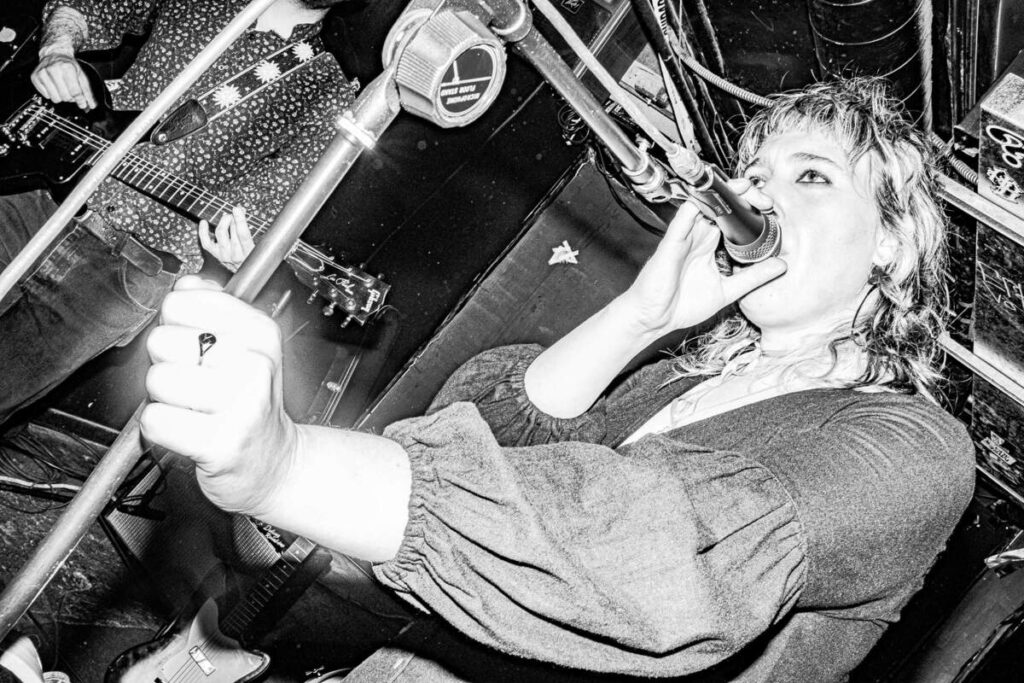
Let’s end this interview with some of your favorite albums. Have you found something new lately you would like to recommend to our readers?
Kyle: I’ve recently been listening to hiding places by billy woods, miss america by Mary Margaret O’Hara, Naturally by J.J. Cale, and the soundtrack to Challengers by Trent Reznor & Atticus Ross.
Keith: Old stuff. ‘Roforofo Fight’ by Fela Kuti, F’rom Bone to Satellite’ by Tarentel, ‘New Plastic Ideas’ by Unwound. Kyle and I are going to see them this weekend. The A$AP Rocky and Taylor Swift video is fucking bonkers.
Kerry: Always loving my favorites from the ’90s like The Cranberries, Tori Amos, Alanis, The Sundays, NIN, The Pumpkins, Alice in Chains. There’s just so much good stuff there. Also having a major moment with some of the ethereal, moody electropop made by Caroline Polachek, Eartheater, FKA Twigs, and MUNA. And of course, the post-punk adjacent bands like Deeper, Spirit of the Beehive, and Closebye. We just saw Closebye perform live in Portland last night, they were great. And always, always PJ Harvey.
Klemen Breznikar
Death Doula Official Website / Instagram / Bandcamp / YouTube

